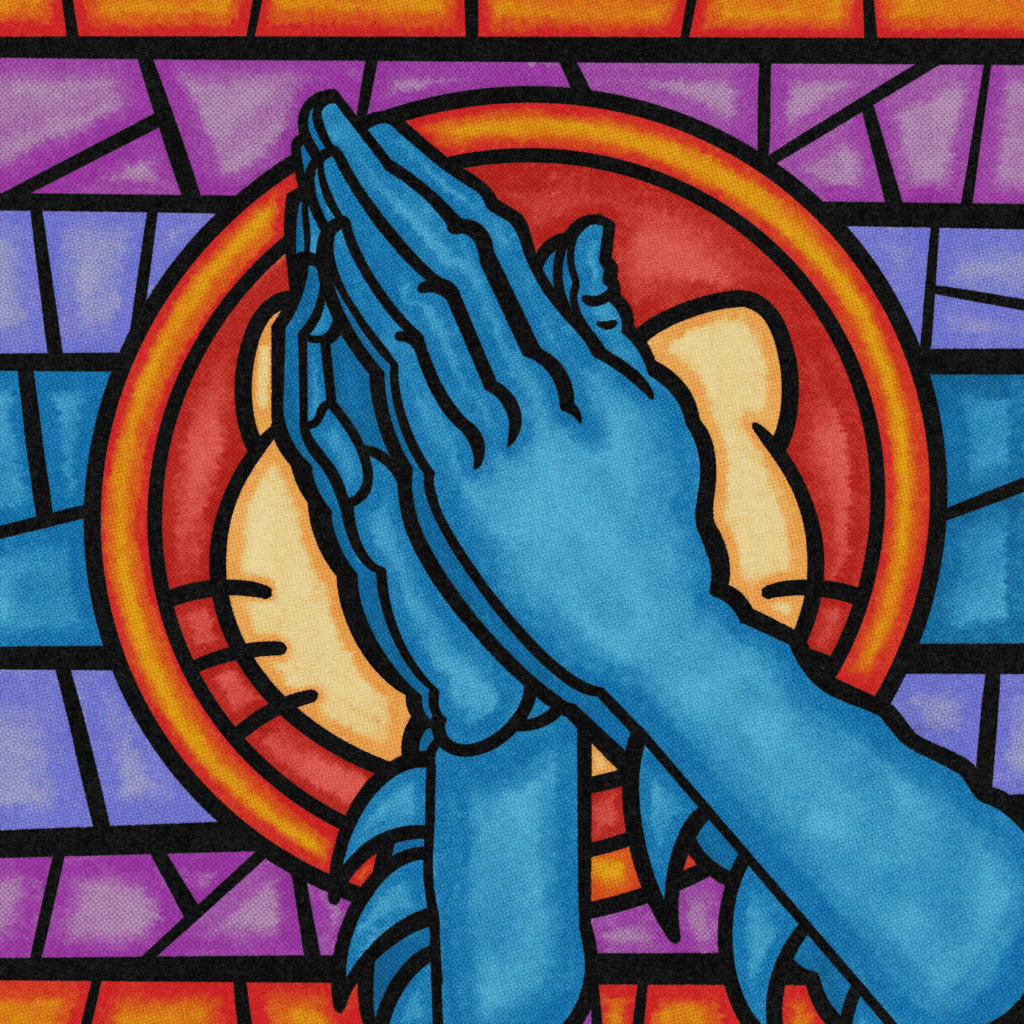Brian Miller holds a degree in Religious Studies from the University of California, Berkeley. Be sure to click over to his personal movie review blog to see his “favorite filmic things” of 2020.
If you have a NOTW sticker on your pickup truck window and a Batman logo right next to it, you’re a polytheist. If you have a Jesus fish emblem slapped on your bumper and a Jack Skellington tattoo on your arm, you’re a polytheist. The only way American monotheistic dogma maintains its legitimacy is by shifting kitchen gods away from the mouths of spiritual leaders and into the bank vaults of corporate entertainment conglomerates. Suddenly kitchen gods are just mere entertainment, lacking sacredness in any manner. Supposedly. It is a sleight of hand that benefits movie studios with the power to make money that was once reserved for, say, the Vatican. That power of holding your beliefs in their clutches, so firmly, that all the power funnels to them. No matter where they come from though, the fictional characters that we obsess over, together, as a culture, are the true mythology of our civilization. They connect us to philosophy, politics, and the pursuit of happiness in a manner that is the clear-cut definition of the sacred. Our profane lives are elevated into an understanding that transcends what limited personal experience we have.
Just in case your own life is swimming in monotheism (most Westerners are born in the deep end of it), a kitchen god is not a far cry from a Greek god: a minor deity that represents a specific idea rather than being the ultimate creator God. Anyone who has read basic bitch comic book theory knows that people love to say superheroes are modern Greek gods. This might make sense within the narratives that we tell superhero stories, but for audiences, they’re more of kitchen gods. We have personal relationships with them. We pick and choose our favorites and can change our favorites without any sense of sacrilege. They are the gods of what are sacred, yet fairly transitory. They represent the important aspects of our lives, mostly at the moment we are experiencing them.
If you’ve made it this far, there is a point other than accusing you of being a cult follower simply for liking Hello Kitty a lot. ‘Cuz the thing is, everyone has these passions. It is at the core of being human. As usual, John Waters knows all: “Without obsession, life is nothing.” So if these obsessions. These kitchen gods. These corporate mythologies are this vital to life itself, we need to consider some basic human rights in relationship to them. Owning them may not be like owning air and water, sure. But even if the U.S. has failed so far to live up to the proposition of having the right to pursue happiness, we are a nation existing in conversation with the importance of the idea, trying to figure it the heck out.
Food for thought then: What if after, say, 40 years, franchise rights become public domain no matter what? The content made during those first 40 years could remain a form of private property (the movies, the comics, etc.), but from that point forward, anyone would be allowed to make new content for the mythological characters and ideas that make up the belief system. Ultimately, as civilizations rise and fall, we’re bound to see Wonder Woman and Bart Simpson freed from their shackles anyway. Why not start now? I mean, this Buddhist Temple is already doing it, so if you don’t trust me, trust those who have devoted their lives to faith.


